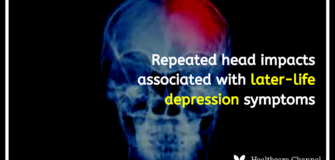Social media sites aren’t the only things that keep track of your social network — your brain does, too. But loneliness alters how the brain represents relationships, per new research published in JNeurosci.
A brain region called the medial prefrontal cortex (mPFC) maintains a structured map of a human social circle, supported closeness. people who struggle with loneliness often perceive a niche between themselves et al. This gap is reflected by the activity patterns of the mPFC.
Courtney and Meyer used functional resonance imaging to look at participants’ brain activity while they considered the self, close friends, acquaintances, and celebrities. wondering someone from each category corresponded to a unique activity pattern within the mPFC: one for the self, one for the social network (both friends and acquaintances), and one for celebrities. The closer the connection, the more the pattern resembled the pattern seen when considering the self.
These brain patterns differed for lonelier individuals. Activity associated with pondering the self was more different from activity associated with brooding about others, while the activity from considering others was more similar across social categories. In other words, lonelier people have a “lonelier” neural representation of their relationships.
Abstract
Social connection is critical to well-being, yet how the brain reflects our attachment to other people remains largely unknown. We combined univariate and multivariate brain imaging analyses to assess whether and how the brain organizes representations of others based on how connected they are to our own identity. During an fMRI scan, female and male human participants (N=43) completed a self- and other-reflection task for 16 targets: the self, five close others, five acquaintances, and five celebrities. In addition, they reported their subjective closeness to each target and their own trait loneliness. We examined neural responses to the self and others in a brain region that has been associated with self-representation (medial prefrontal cortex; MPFC) and across the whole brain. The structure of self-other representation in the MPFC and across the social brain appeared to cluster targets into three social categories: the self, social network members (including close others and acquaintances), and celebrities. Moreover, both univariate activation in MPFC and multivariate self-other similarity in MPFC and across the social brain increased with subjective self-other closeness ratings. Critically, participants who were less socially connected (i.e. lonelier) showed altered self-other mapping in social brain regions. Most notably, in MPFC, loneliness was associated with reduced representational similarity between the self and others. The social brain apparently maintains information about broad social categories as well as closeness to the self. Moreover, these results point to the possibility that feelings of chronic social disconnection may be mirrored by a ‘lonelier’ neural self-representation.
Significance Statement
Social connection is critical to well-being, yet how the brain reflects our attachment to people remains unclear. We found that the social brain stratifies neural representations of people based on our subjective connection to them, separately clustering people who are and are not in our social network. Moreover, the people we feel closest to are represented most closely to ourselves. Finally, lonelier individuals also appeared to have a ‘lonelier’ neural self-representation in the MPFC, as loneliness attenuated the closeness between self and other neural representations in this region. The social brain appears to map our interpersonal ties, and alterations in this map may help explain why lonely individuals endorse statements such as ‘people are around me but not with me.’
Society for Neuroscience. “Loneliness alters your brain’s social network: Feeling disconnected from others is reflected by how the brain represents relationships.” ScienceDaily. www.sciencedaily.com/releases/2020/06/200615140904.htm (accessed June 24, 2020).





























